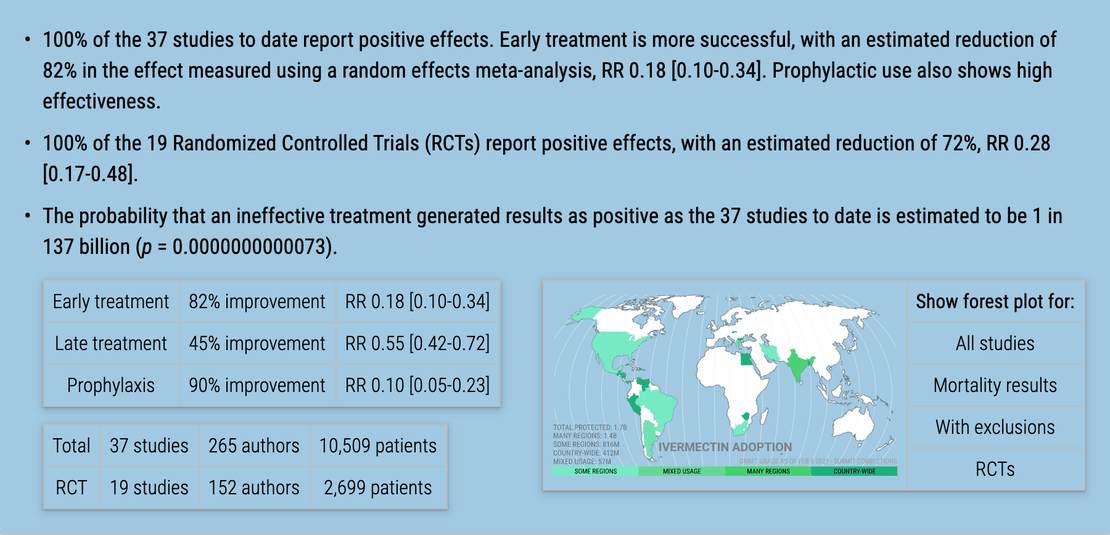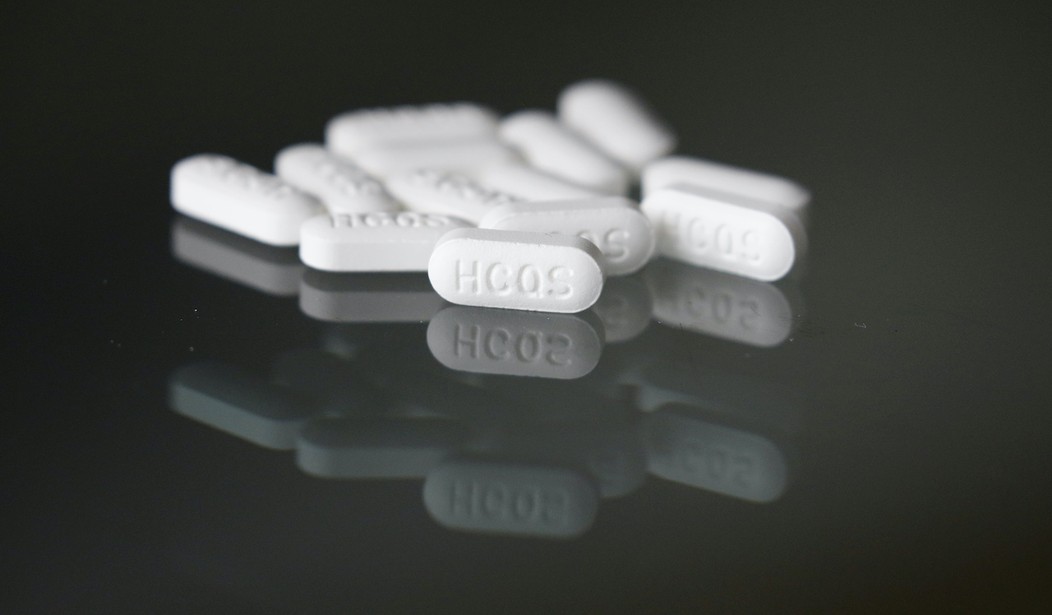In December, I wrote about a Senate Homeland Security and Governmental Affairs Committee hearing focused on testimony about potential early and outpatient treatments for COVID-19. A group of doctors detailed their research on ivermectin, a generic anti-parasitic drug:
The medication being discussed in this hearing is ivermectin. It has not been studied as much as HCQ, but the results to date are encouraging. The witnesses have studies covering over 4,000 patients in various settings but cannot obtain a review through the NIH. They asked for the committee’s assistance with this and noted that funding for additional studies is not readily available. Money to study the efficacy of current generic medications in new applications is difficult to obtain. That is a tragic fact, as these medications are less expensive and more readily available.
During the hearing, one of the physicians stated that with the results the researchers have seen to date, he would consider it malpractice not to provide this medication early in a COVID-19 infection. A website that tracks medications studies in COVID-19 has summarized a meta-analysis of the research to date for ivermectin:

If you look at the graph, you can see 19 random control trials (RCTs). Yet the NIH website says this:
The COVID-19 Treatment Guidelines Panel (the Panel) has determined that currently there are insufficient data to recommend either for or against the use of ivermectin for the treatment of COVID-19. Results from adequately powered, well-designed, and well-conducted clinical trials are needed to provide more specific, evidence-based guidance on the role of ivermectin for the treatment of COVID-19.
You have to wonder how many RCTs would be required to satisfy the NIH. I am old enough to remember when the FDA gave remdesivir an emergency use authorization after one. At over $3,000 for the treatment, the trial results did not show a decrease in mortality. It helped people who were likely to recover do so more quickly. In November, the WHO issued a conditional recommendation against remdesivir because its review of additional studies found no benefit:
Data reviewed by the panel included results from this trial, as well as 3 other randomized controlled trials. In all, data from over 7000 patients across the 4 trials were considered.
The evidence suggested no important effect on mortality, need for mechanical ventilation, time to clinical improvement, and other patient-important outcomes.
You can talk about remdesivir on television, Twitter, or YouTube, and you will not be censored. The drug is still in use with a hefty price tag and requires hospitalization. However, if you talk about ivermectin, it appears you will be. Jonathan Turley, a law professor at Georgetown University, noted the following on his blog:
YouTube removed two videos from a December 8th hearing before the Committee on Homeland Security and Governmental Affairs. It featured Kory who discussed the use of Ivermectin as a potential treatment for Covid-19, particularly in the early stages. It is a drug that treats tropical diseases caused by parasites. Kory was calling for a review by the National Institutes of Health on trials for the drug. Ultimately, it does appear that the NIH did change the status of the drug.
Sen. Ron Johnson (R-WI) has said that the videos were blocked on his account, including Kory’s testimony. The Federalist maintained that YouTube removed the videos to the platform’s COVID-19 Medical Misinformation Policy. That policy stipulates that anything which goes against “local health authorities’ or the World Health Organization’s (WHO) medical information about COVID-19” will be removed.
Turley’s concern is free speech, as he discusses the increasing calls for censorship in the remainder of the post. The other significant problem is medical knowledge. Doctors can legally prescribe approved drugs off-label, especially medicines such as ivermectin and hydroxychloroquine (HCQ) that have been in use for decades and boast excellent safety profiles. HCQ is one of the few medications deemed safe for pregnant women and had another positive observational study regarding outpatient use. Yet Dr. Zev Zelenko was suspended from Twitter for talking about it.
I was locked out of my Twitter account for 12 for saying wearing multiple masks was ridiculous, disclosing I don’t wear one at all, and spelling out the preventative medications I take. These medications are listed on a treatment protocol from the Eastern Virginia Medical School and doctors with the American Association of Physicians and Surgeons. Doing these things is my choice, and there are medical endorsements because of the medications’ known actions. They are quercetin, vitamin C, vitamin D3, zinc, echinacea, and melatonin*. All are available over the counter and have been discussed with my doctor. But I was not allowed to tweet about them.
As of right now, the COVID-19 vaccination has no safety data if a woman is pregnant, if someone has an autoimmune disorder, or is over the age of 85. People with a history of anaphylactic allergic reactions are also cautioned about taking the vaccine. And some portion of the population will remain vulnerable to COVID-19 even after being vaccinated. The vaccination does not make the need for early outpatient treatment disappear. Also, those who chose not to receive the vaccine should have outpatient treatment options.
The current administration has vowed to operate in an evidence-based fashion respecting science and data. Yet, social media companies are censoring science and research amid a pandemic. The COVID-19 studies group estimates from the dates of studies that showed HCQ and ivermectin had clinical effectiveness, over a million people have died needlessly. Doctors have been discouraged and threatened with punishment from medical boards or hospital administrations if they prescribe them for COVID-19.
Restricting medical freedoms in light of the efficacy data and safety of the medications in consideration is obscene. It is also unprecedented. It is long past time that our leaders in Washington D.C. investigate why this is happening.
LISTEN if you would like to learn more about HCQ and ivermectin for COVID-19:
*Before taking any medication, you should discuss it with your healthcare provider.










